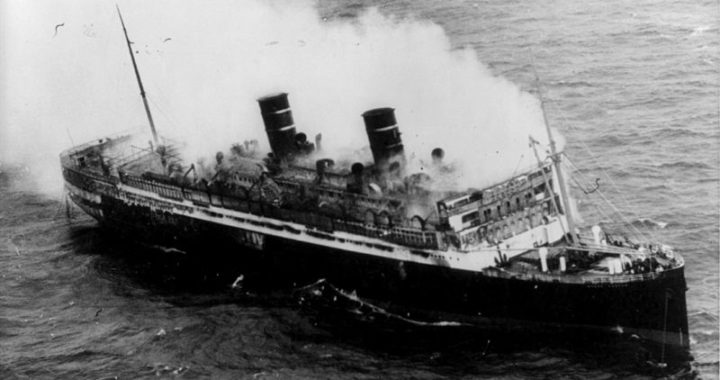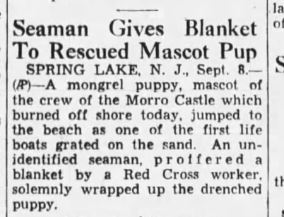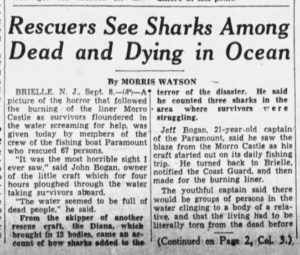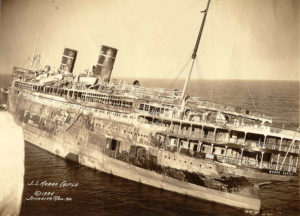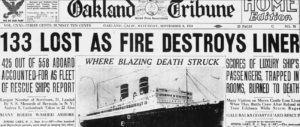WHAT IS THE DUNNING - KRUEGER EFFECT?
“People tend to hold overly favorable views of their abilities in many social and intellectual domains. The authors suggest that this overestimation occurs, in part, because people who are unskilled in these domains suffer a dual burden:
Not only do these people reach erroneous conclusions and make unfortunate choices, but their incompetence robs them of the metacognitive ability to realize it.
Across 4 studies, the authors found that participants scoring in the bottom quartile on tests of humor, grammar, and logic grossly overestimated their test performance and ability. Although their test scores put them in the 12th percentile, they estimated themselves to be in the 62nd.
Several analyses linked this miscalibration to deficits in metacognitive skill, or the capacity to distinguish accuracy from error. Paradoxically, improving the skills of participants, and thus increasing their metacognitive competence, helped them recognize the limitations of their abilities.”
– Dunning/Krueger
Source: Semantics Scholar
FALLING AND FAILING IN THE RESCUE WATER CRAFT CULTURE
You can see them in videos and all over the internet, making claims that you know are reckless, dangerous and negligent, but they are oblivious to. You see it in organizations, associations, departments, teams and instructors.
How can obvious warning signs that are unsafe practices be so easily ignored or unrecognized? This behavior lies in the individual’s self-assessment of over inflated value. This can lead to poor estimation of actual capabilities and lure an Operator into a false sense of security.
This is where we view frequent accidents on videos of Operators using a PWC beyond their actual capabilities. The relevant skills are missing. These detrimental behaviors are costly and only serve a self serving bias and do not reflect our professional operations.
We never arrive at the pinnacle of our objective. We are constantly striving for the horizon of knowledge. This is a mighty journey, do not over place yourself.
When asked do I consider myself an advanced RWC Coxswain, I respond ‘yes, but I have so much more to learn’.
Our enthusiasm for using a Rescue Water Craft and diminishing the boating safety requirements for competency has become a maritime cultural whitewash. It has brought all of us to this monolith at some point in our career.
Usually the wake-up call is a fatality in training or destruction in the field during a call-out. This is where lessons will be learned rather than taught to prevent.
People who are not able to recognize their RWC operational incompetency if tested could not fulfill the reciprocal RWC skills necessary to become competent.
Their logic of performance is based upon the very flaws lacking in their scope even though they boast confidence based on ‘feelings’ rather than ‘facts’, they are a time bomb ticking.
SIGN HERE PLEASE
Why does this matter? Because safety is not a word it is a behavior in place for providing consistent boating operations. We have many predecessors in our ancestral maritime culture who have given us the path towards success. It should not be ignored by the new generation of RWC operators.
The fix for this would be to challenge an Operator as a Coxswain, because the standards are askew between the two.
Stiff regulations of evolutionary boating knowledge are determined by a Coxswain. An Operator is basically anyone at the helm of a Personal Watercraft.
How to avoid the pitfalls of your own meta cognition regarding Rescue Water Craft competency? You have to be critical of yourself; actions, motives, skills and knowledge base.
This is why the scrutineers of instructors must be thoroughly tested based on the science of evidence, fact and performance.
In our boating safety culture, Instructors are the first round of success or failure. If they are not competent in their own scrutiny of the knowledge base, they will turn out the next generation of lower than average Coxswains and Crew members.
However, If an Instructor has been examined after intensive Coxswain training and has the ability to consistently apply themselves to learning and knowledge annually with their recertification, they will be avoiding what is called the Dunning-Kruger effect.
Instructors are not immune to self-inflation. This is why we should all question the content and challenge it for professional development. That type of scrutiny is valid for our safety and those we serve.
KNOWLEDGE IS A PROCESS FOR THE IGNORANT
When a person first engages in learning the RWC knowledge foundation, they previously did not harness now becomes inspiration.
Their prior ignorance of the subject of Rescue Water Craft operations and subsequent instruction afterward, they may feel the invigoration of knowledge.
This is a wonderful experience of inspired purpose, but you are just beginning, it’s the baseline of promise. It is not the destination.
This ignorance can be dangerous if they believe they are an immediate expert.
That takes years of cognitive reasoning with practical applications in the scope of the domain regarding these small power craft. It cannot happen with one class, or one year or even five years.
To master the knowledge base is an intensive process and progress laden struggle, and you should not do this alone. Ask for help. Ask for evaluations, research and study. (Keep repeating that)
Group misconceptions are also on the rise mainly due to the rapid post firing of internet posts that are not scrutinized by governing bodies of education or expertise.
Taking an RWC course does not make you an expert after a few hours or days. Keep training, get on the boat on the water and develop the skills your instructor warned you about.
TO BE OR NOT TO BE
Behavioral training is a significant influencer on our skills, and this can go in an upward or downward trend. Poor imitation is not success.
Knowing something does not make you an expert. Understanding the realities, history and physics behind it with real world data and scrutiny does.
You can be the nicest person on a Personal Watercraft, and well-liked by your friends and colleagues.
But-If you cannot conduct a positive pivot point secure stop on a Rescue Water Craft 50 times, you don’t know what you are doing. And both port and starboard side swings please! After that we will move onto 25 other skill assessments to determine your competency.
This absence of operational knowledge can ruin reputations, damage equipment and injure or kill people.
Isn’t that enough to scare you into a self-evaluation process of your skills? Probably not.
If you are humble and willing to professionally develop your skills, begin here: Focus on your analytic skills. Look at past historic accidents and videos with repetitive operators creating mishaps. Have you missed something? Do you see yourself in the video?
The ethernet universe is cursed with misinformation regarding Rescue Water Craft operations. It is impossible to correct the dangerous operators and educate their adoring fans.
First red flag: Do not seek negative attention from an accident (mishap).
CONSIDER THE OBVERSE
If a Subject Matter Expert who is internationally recognized points out the flaws of safety or operation, listen to them.
Challenge the advice. Be open to the support you are receiving.
You may even help them. Ask me how I know? I had to admit my own shortcomings in knowledge when I stacked up against seasoned boat Captains and Coxswains in the early 1990’s. I quickly realized how little I know about power boating from a technical maritime advantage. I soon wised up and altered course.
‘Criticism in the scope of learning and is the gateway to progress’. (A good affirmation I use)
This is how we construct our positives from our negatives; where failure can endure the process of capacity unfulfilled or neglected.
Be your own Devil’s Advocate. Be hard on yourself, because you care about your reputation.
Write down the opposing views of the positive ones you embrace. What could go wrong? Why would that take place? What sets the pattern in motion for an accident? Do you know what a mishap is and what to consider?
If you changed one thing in your RWC pattern of operations, how much more effective do you think you would be? Are you open to change? Do you have courage to make improvements?
You won’t know until you go.
Reference the Authors: Unskilled and unaware of it: how difficulties in recognizing one's own incompetence lead to inflated self-assessments.
By Justin Kruger and David Dunning (Authors)
Source: Download the Study Here
Download this article here:
__________
Posted: January 19, 2020
Content Creator of Rescue Water Craft and Personal Water Craft boating international education standards: Shawn Alladio is the world’s foremost authority and leading subject matter expert. She cares most about her community and the culture surrounding the safety of event service providers and Rescue Water Craft operators, working hard and dedicated towards protecting their reputation, distributing safety information and continuing to train these amazing individuals to the highest standards of care.
__________
Have any questions? Come train with us and discover what your community is doing to modernize standards, safety and reduce liability!
Caution: Use at your own risk. Please take a qualified Rescue Water Craft training course and maintain proper records and respect all the PWC, RWC, PPE, and gear OEM manufacturer warning labels and cautions.

